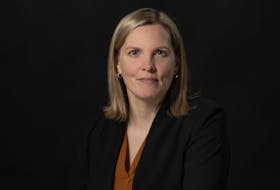You go to the emergency room, the doctors find the problem, fix it, and either send you home or keep you in the hospital.
That’s the ideal scenario when we think of hospital admission assessments. But if you’re an older person with chronic health issues, it’s not so straightforward.
“The big challenge in general with the health-care system now is handling people who come into hospital with acute issues but with their chronic issues also being a contributing factor to the hospital stay,” said Sam Searle, an epidemiology/geriatrics researcher at Dalhousie University in Halifax and University College London in England.
Taken on their own, a frail person’s less obvious health abnormalities might not appear to be significant compared to the heart attack, stroke or whatever acute episode that brought them to the hospital in the first place.
“But actually (they) have a big impact on death, whether they’re going to be discharged back to their home, whether they’re going to come back into the hospital,” or go into long-term care, Searle said in a recent interview from London
As part of his PhD studies into these problems, Searle and his research team created a frailty index - called FI-Laboratory - that aims to improve the way clinicians measure a senior’s frailty in the context of their sudden illness. They created this tool using health data from about 2,200 patients who were admitted to University College Hospital in London.
“Some of these people are spending days and even weeks in hospital and now this tool identifies people at the front door that are going to have a long hospital stay. That they might not come back to their home. So their planning can happen right away.
- Sam Searle, geriatric/epidemiological researcher
The index assigns a risk score to a patient that provides a fuller picture of their health but doesn’t complicate the hospital assessment process in an already stressed health-care system.
“I wanted to create a tool (to better assess) their underlying chronic health issues,” Searle said. “I also wanted to do it in a way that the health-care team wouldn’t actually have to do anything different. . . .
“Some of these people are spending days and even weeks in hospital and now this tool identifies people at the front door that are going to have a long hospital stay. That they might not come back to their home. So their planning can happen right away.”
The FI-Laboratory tool would come into the form of software that can be incorporated into existing electronic data systems. For example, in Nova Scotia, hospitals use a system called clinical portal.
The index might have to be tailored for Nova Scotia’s population, as opposed to the demographic and health data from the London patient study, said Searle, who grew up in Truro and also works with noted Dalhousie University geriatric researcher Dr. Ken Rockwood.
Rockwood is a co-author of the FI-Laboratory study - which was published Monday in the Canadian Medical Association Journal - along with Daniel Davis, Searle’s supervisor at University College London.
The next step would be confirming this tool can be generalized for use in any hospital setting, Searle said. The ideal situation would be bringing more geriatric specialists into the mix to interpret a patient's frailty index during hospital admittance.
Given the shortage of geriatricians in Nova Scotia, and indeed across North America, Searle said the FI-Lab tool could also be used by care managers called geriatric navigators. (There is a geriatric navigator program at Dartmouth General Hospital but information wasn’t immediately available from the Nova Scotia Health Authority on their use at other sites.)
However the tool is implemented, Searle said it has the potential to improve patient outcomes as well as ease pressure on overburdened hospital and long-term care systems.
“(It’s) a way to introduce some care planning and advice, and prepare the patients and their loved ones for what’s to come.”
RELATED
Groundbreaking Dalhousie study singles out frailty as key dementia risk









